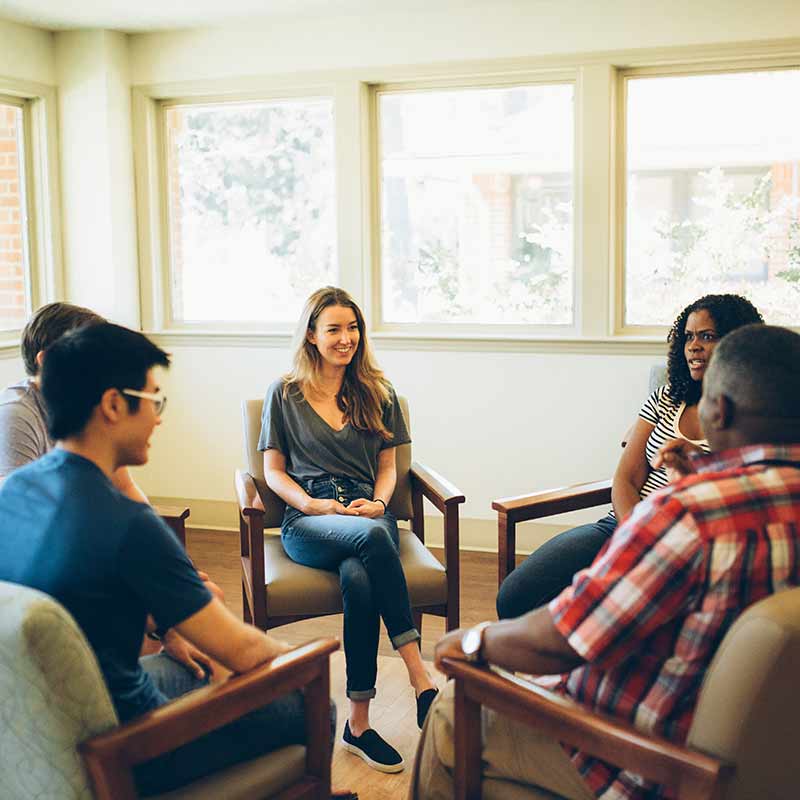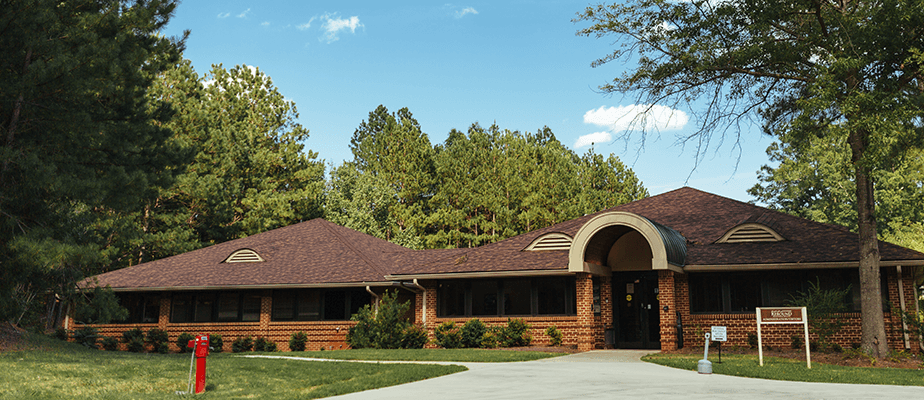We help people improve their quality of life by providing excellent care. Contact us today to discover how we can help.
More About Depression
Learn more about depression and treatment at Rebound Behavioral Health in South Carolina
Depressive disorders are some of the most common mental disorders in the United States, affecting people of all ages. Depression causes changes in mood, behaviors, and cognition. These symptoms can impair your ability to lead a healthy independent life. If you’re struggling with depression you may find that on some days it may be hard to even get out of bed in the morning. The simplest things may overwhelm you, leaving you feeling worthless and helpless as the days pass. Going to school or work may be a challenge as you struggle to put on a happy face for the rest of the world. Depression hurts. But there is a way out.
As the leading depression treatment center in South Carolina, Rebound Behavioral Health Hospital has helped countless men and women successfully beat their depression and emerge on the other side victorious. We know that you’re a unique person with unique struggles and we’re ready to put our years of experience into helping you recover from depression in the least restrictive environment possible. Our treatment options include inpatient care, partial hospitalization, and intensive outpatient programming. We’ll work with you to determine which level best fits your needs.
How to Help a Loved One
Helping a loved one get treatment for depression
If your loved one is struggling with depression, it probably wears on you as well. Seeing someone suffering from extreme sadness or other symptoms of depression can break your heart and make you feel powerless to help. You may not know what to say or how to say it, or if you should even try to say anything. You may just know that your loved one needs help beyond anything you can provide. Here are some tips for gently guiding your loved one to seek depression treatment:
Research treatment options: Some people may benefit from seeking outpatient treatment for depression, while others need the structure and safety of an inpatient program to fully engage in the treatment process. Find out what options are available to your loved one and arrange a tour of any inpatient treatment center you think may work best for your loved one.
Listen: Many times, people struggling with depression feel hopeless and worthless, like they don’t amount to much of anything. One of the best ways to support your loved one is to sit down with them and remind them of how much they mean to you. Assure them that you love them no matter what. Help them understand that having a mental illness such as depression doesn’t mean that they are flawed or unworthy. Most importantly, listen to them. Provide a safe space in which they can openly and honestly discuss what they’re feeling, without fear of being judged or criticized.
Why Consider Treatment
Why consider inpatient treatment for depression at Rebound Behavioral Health in South Carolina
If you’ve been living with untreated and unmanaged depression, you probably have noticed that your world is slowly shrinking as you withdraw from once-enjoyable activities, stop calling friends back, and start spending most of your time alone. You may feel lonesome, but you also feel like you’re a “burden” to others. You may have begun to hurt yourself as a means of punishing yourself for having these feelings of hopelessness and helplessness. You may have turned to alcohol or drugs to numb the emotional pain you’re grappling with. Some people even report feeling suicidal thoughts and impulses. There is another way.
An inpatient depression treatment center that has a reputation for excellence has been shown to be one of the best ways to begin to manage severe depression. You’ll be able to step away from the stresses and pressures of everyday life, and focus on what’s most important: your health. When you get help at a depression hospital, you’ll receive round-the-clock care and focused support.
Our Rehab Philosophy
Rebound Behavioral Health’s Rehab Philosophy
As one of the leading depression treatment centers in South Carolina, we strive to offer a safe haven of treatment for people struggling with mental health disorders, dual diagnosis, and chemical dependency. We firmly believe that you should play the driving role in your recovery and build upon the strengths you already have to create a future you want to live in. Our multidisciplinary team of doctors, nurses, therapists, psychologists, psychiatrists, and support staff will be alongside you throughout every step of your journey, constantly ensuring that your treatment goals are being met and exceeded during your stay with us. Rebound strongly believes that treatment for depression should never be a cookie-cutter approach. Instead, we create our treatment plans with you – so that you have a say in your care and treatment. At our depression hospital, we’re ready to help you unlock the strength within you so that you can lead the life you’ve always wanted.
Treatment Methods
Types of depression treatment offered at Rebound Behavioral Health
When you come to us for help, you’ll first undergo a series of evaluations. This will help us determine which level of care would be best for you and design a personalized plan to guide your progress. Our medical evaluation will help us to determine if there are any medical reasons that could be causing your depression and if you’re using drugs or alcohol to mask the pain you feel. The psychiatric examination will let us determine the severity of your depression and if you’re struggling with co-occurring mental health disorders. We’ll take the results of these evaluations and sit down with you to create a plan of care that meets all of your needs – mind, body, and spirit.
Individual therapy can be very helpful for people who have depression. The therapists at our depression treatment center often use a technique called cognitive-behavioral therapy that allows us to illustrate the ways in which negative thought patterns affect your behaviors. We’ll work together to correct these thoughts with more positive ways of viewing the world so that you can make behavioral changes for the better. We’ll also talk about coping skills, management of stress, and depression triggers in individual therapy.
Group therapy can be valuable for people who have depression as you may have socially isolated yourself throughout your depressive episode. Through group therapy at our depression hospital, you’ll relearn social skills and develop effective communication patterns as you work with others who are struggling with similar challenges. Groups may educate you about medication, relapse prevention, and coping skills, or they may allow you to process some of the emotions you have about depression and the way it has impacted your life.
Family therapy is used to make sure all family members and loved ones are on the same page regarding your depression treatment plan. We’ll use family sessions to appropriately plan for aftercare, discuss treatment options, and educate your loved ones about the warning symptoms of a relapse. We’ll also connect your loved ones with available community support to allow for their continued healing.
As a holistic treatment center, Rebound Behavioral Health Hospital is proud to offer a variety of experiential therapies to complement traditional therapeutic techniques. These include:
- Massage therapy
- Exercise therapy
- Activity therapy
- Relaxation therapy
- Music therapy
- Pet therapy
- Spiritual counseling
- A.A. and N.A. groups
Discharge & Continuing Care
Maintaining your mental health while suffering from depression
As your time for discharge draws close, you’ll meet with a discharge planner and your treatment team to determine the next best steps in your care. Many people opt to step down from our inpatient services into our outpatient services. This will allow you to slowly reintegrate back into your community while focusing on your recovery during the day. Other people may have made enough progress at our treatment center to be ready to return home with referrals to traditional outpatient therapy and community resources in your area.


















